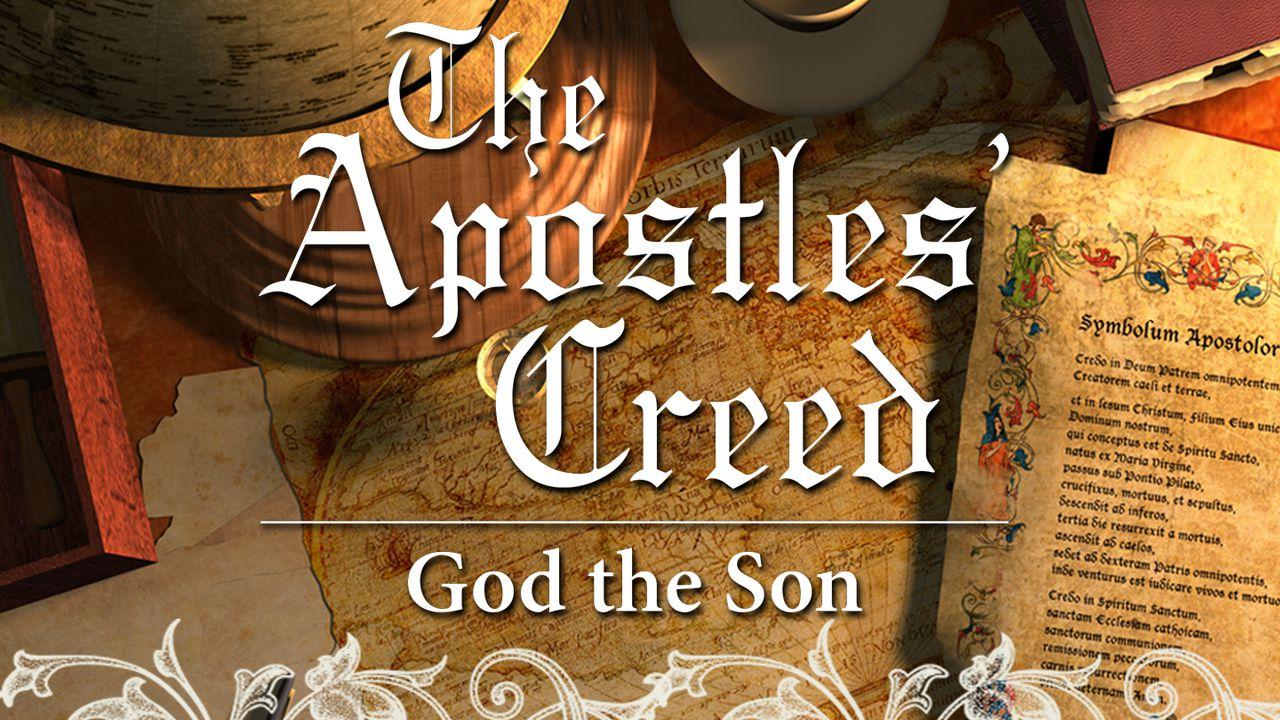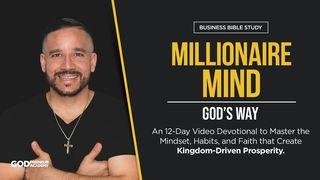The Apostles’ Creed: God The SonSample

Jesus’ Enthronement: Acts 2:30-36
The New Testament mentions Jesus’ enthronement at the right hand of God the Father in many, many places. The basic idea is that Jesus is our great human king, and that he has a throne in heaven that sits to the right of the Father’s great throne. In this scenario, the Father is the great high king or suzerain, and the Son is the lesser king or vassal that serves him. This follows the model of kingdoms in the ancient world, whereby lesser kings would rule over various portions of a great empire, and pay tribute and render service to the emperor.
Normally when we think about the kingship of Christ, we think of that as something very exalted, high up there, and because Jesus is now at the right hand of God the Father, and he is the King. But we must remember that Jesus was exalted in his kingship in his human nature. That’s to say, in his divine nature, Jesus was always the King. He was always ruling as the sovereign over all things, but Jesus was given authority in heaven and earth in his human nature. And Jesus is the Son of David, and therefore the one who represents the nation of Israel, and the people of God. And the Son of David, like David himself, was a vassal king; he was a servant of the greater king, God the Father in heaven. – Dr. Richard Pratt, Jr.
In passages that mention Jesus in his role as king, he is also spoken of as a priest who intercedes for his people. This follows the model of the ancient world in which kings commonly served as priests. For example, Melchizedek was both priest and king in Genesis 14.
When Scripture speaks of Jesus’ position at the Father’s right hand, it sometimes emphasizes his role as our messianic king, as in Acts 2:30-36, Ephesians 1:18-23, Hebrews 1:3-9 and 1 Peter 3:21-22.
At other times, though, the Bible highlights Jesus’ role as our high priest who intercedes for us. We find this emphasis in passages like Romans 8:34 and Hebrews 8:1.
In both cases, though, the meaning is the same: Jesus has authority and power over all creation, which he rules over on behalf of the Father. And in that position, he brings salvation to his people, and ensures that the Father looks on them favorably.
Scripture
About this Plan

This reading plan speaks of the divinity of Jesus Christ, looking at things like the nature of his divinity, and his relationship to the other members of the Trinity. It looks at his humanity, and discusses the relationship between his divine and human natures. And it talks about his work both during and after his earthly ministry.
More
Related plans

1 Gift. 1 Life. 1 Million.

When Life Feels Empty

God Wants You to Prosper

Song of Solomon | Chapter Summaries + Study Questions

Daily Godpreneur: Millionaire Mind

Connection Defeats Porn: How to Strengthen Your Relationship With God and Others to Overcome Lust

Man vs. Temptation: A Men's Devotional

BibleProject | Finding God in the Wilderness

Love God Greatly - the Savior Who Comes Near: A Study on the Nearness of God From the Manger to the Cross
